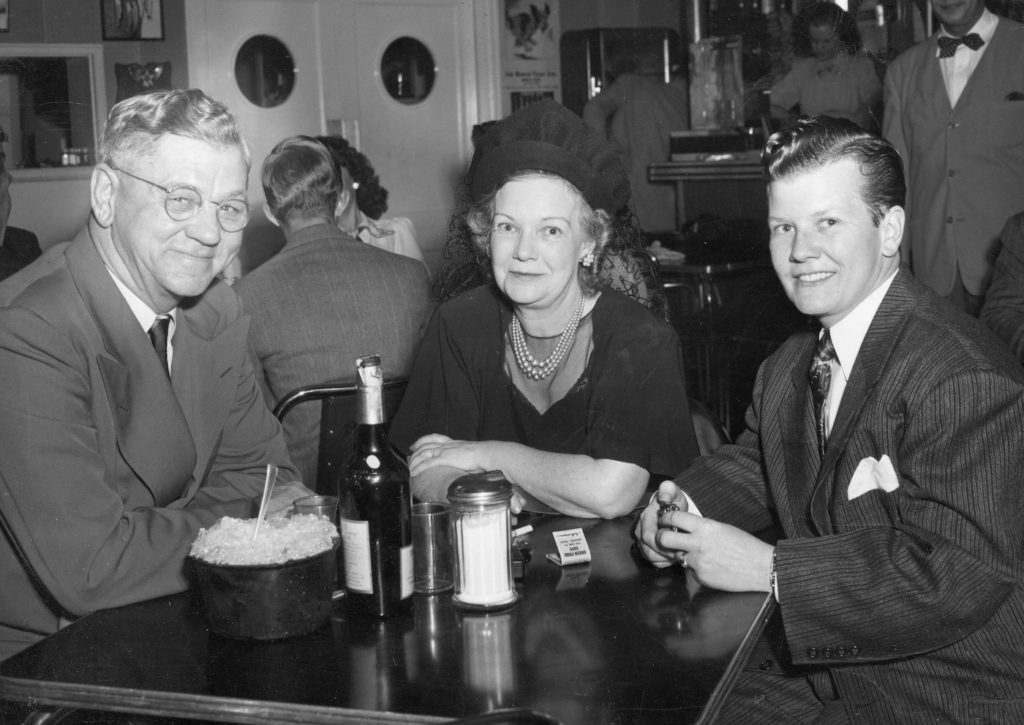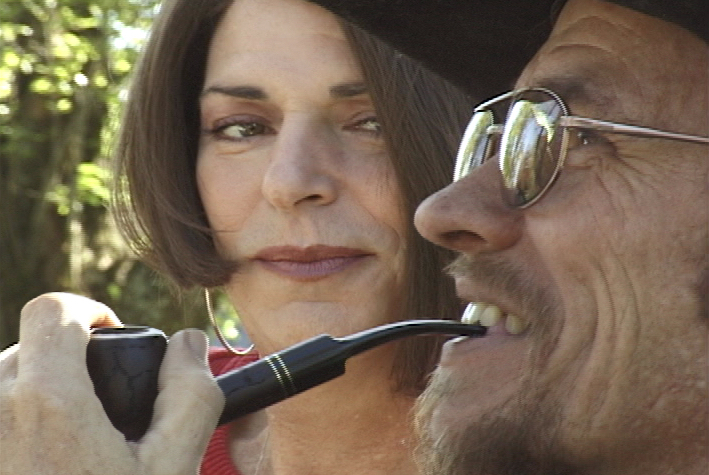“Masc: Trans Men, Butch Dykes and Gender-nonconforming Heroes in Cinema” spotlights a tapestry of films that explore the courageous lives of trans men, butch lesbians, and gender outlaws.
“Masc,” pulled from the Criterion Channel series, surveys six decades of cinema history, searching for authentic and complex representations of queer and masculine identity that challenge societal norms and provide a platform for underrepresented voices in cinema.
“Masc” takes place from Saturday to Aug. 25 at the Billy Wilder Theatre at the Hammer Museum as part of the Outfest UCLA Legacy Project Screening Series at the UCLA Film & Television Archive.
Writer-filmmaker Jenni Olson and film critic Caden Mark Gardner curated the film series.
Admission is free.
“In our interests and expertise as curators, we both know of so many important films by and about butch dykes; trans men; and gender non-conforming, assigned female at birth folks,” Olson said. “We really felt excited to bring the best of these films together in this series and especially to cultivate the common threads and affinities of these communities.”

Jazz musician Billy Tipton, right, spent 15 years touring the Midwest and Pacific Northwest, and eventually shared the stage with many jazz greats. In the late 1950s, he left music and decided to start a family. After he died in 1989, it was revealed that Tipton was assigned female at birth. His story is explored in the film “No Ordinary Man,” which is part of the “Masc” film series. Photo: Oscilloscope Laboratories
In addition to six feature films, “Masc” includes a collection of short films. It’s bookended by the uplifting Pixar-esque children’s film “Pete” and the heart-wrenching drama “Vamanos” and quirky comedy “Monsieur le Butch.”
The shorts also spotlight a batch of cinematic rarities starring the butch dykes and transmasc pioneers of the early 1990s and a rare piece of a 1960s butch home movie.
“For historically marginalized people, seeing ourselves represented on screen is vitally important,” Olson said. “It helps us know we’re not alone and gives us new ways of understanding who we are. We learn our cultural history, and discover a sense of community.”
Olson added: “In this moment of unprecedented attacks on the basic rights of LGBTQ people, and especially trans and gender non-conforming people, honestly, we all simply need and deserve to experience the fundamental restorative joy of cinema.”
Every night of “Masc,” Olson and Gardner will have onstage discussions with special guests.
Here, Olson and Gardner talk about the six feature films in “Masc.”
- “Chavela” (2017), Saturday
Chavela Vargas went from being the toast of Mexico City in the 1960s and 1970s to falling into obscurity in the 1980s. This film follows her return to the world stage as muse to Pedro Almodóvar and culminates in her Lifetime Achievement Award at the Grammys in 2007.
“Filled with music and dynamic energy, the riveting ‘Chavela’ (from co-directors Catherine Gund and Daresha Kyi) dives deeply and skillfully into the complicated life of the legendary Grammy Award-winning Mexican singer Chavela Vargas, who was a gender non-conforming pioneer,” Olson said. “The film’s production quality is outstanding, making it a joy to watch from first frame to last.”
- “Maggots and Men” (2009), Monday
“This experimental filmmaker by Cary Cronenwett goes beyond pastiche of Soviet cinema by portraying a collective of trans masculine bodies centered in this playful and powerful revision of the real-life 1921 Kronstadt Rebellion,” Gardner said.
- “No Ordinary Man” (2020), Saturday
Trans jazz musician Billy Tipton lived in stealth for much of his life. After his 1989 death from health complications, his trans identity was revealed and a tabloid media circus against him and his family followed.
“This film by Chase Joynt, Aisling Chin-Yee, and Amos Mac seeks to correct the record on the way jazz musician Billy Tipton’s trans masculine status was treated in death with the collaboration of numerous trans masculine actors that include Marquise Vilson and Scott Turner Schofield,” Gardner said.
- “Pariah” (2011), Monday
Dee Rees’ tender feature debut is a queer coming-of-age story about an African-American butch lesbian having to face familial homophobia and the realization that the people she loves can hurt and disappoint her.
“Dee Rees’ stunning coming-of-age film shows with great authenticity and clarity a young queer person of color’s exploration of sexuality and gender expression that still feels fresh since becoming a film festival and indie darling over a decade ago,” Gardner said.

“Southern Comfort” is an acclaimed documentary that follows the story of Robert Eads, left, a trans man dying of ovarian cancer. While the film makes the case that he was a victim of systemic transphobia and medical malfeasance from the American healthcare system, Eads’ status as a trans elder among his chosen family
shows him as the beating heart of an incredibly warm and life-affirming community. Photo: UCLA Film & Television Archive
- “Southern Comfort” (2001), Sunday
“This documentary by Kate Davis serves as a necessary reminder of the costs of institutional transphobia in telling the story of trans man Robert Eads who faced discrimination in the healthcare system that contributed to his ovarian cancer diagnosis,” Gardner said. “It also serves as a warm celebration of community and trans brotherhood, it is easily one of the most significant time capsules of trans people in 1990s America.”
- “Vera” (1986), Sunday
“This is a rare opportunity to see this film,” Olson said. “It has never been released on DVD or streaming in the U.S., and this is a beautiful recent restoration. It’s a powerful drama based on the true story of trans Brazilian poet Anderson Bigode Herzer, who tragically committed suicide at the age of 20.”
